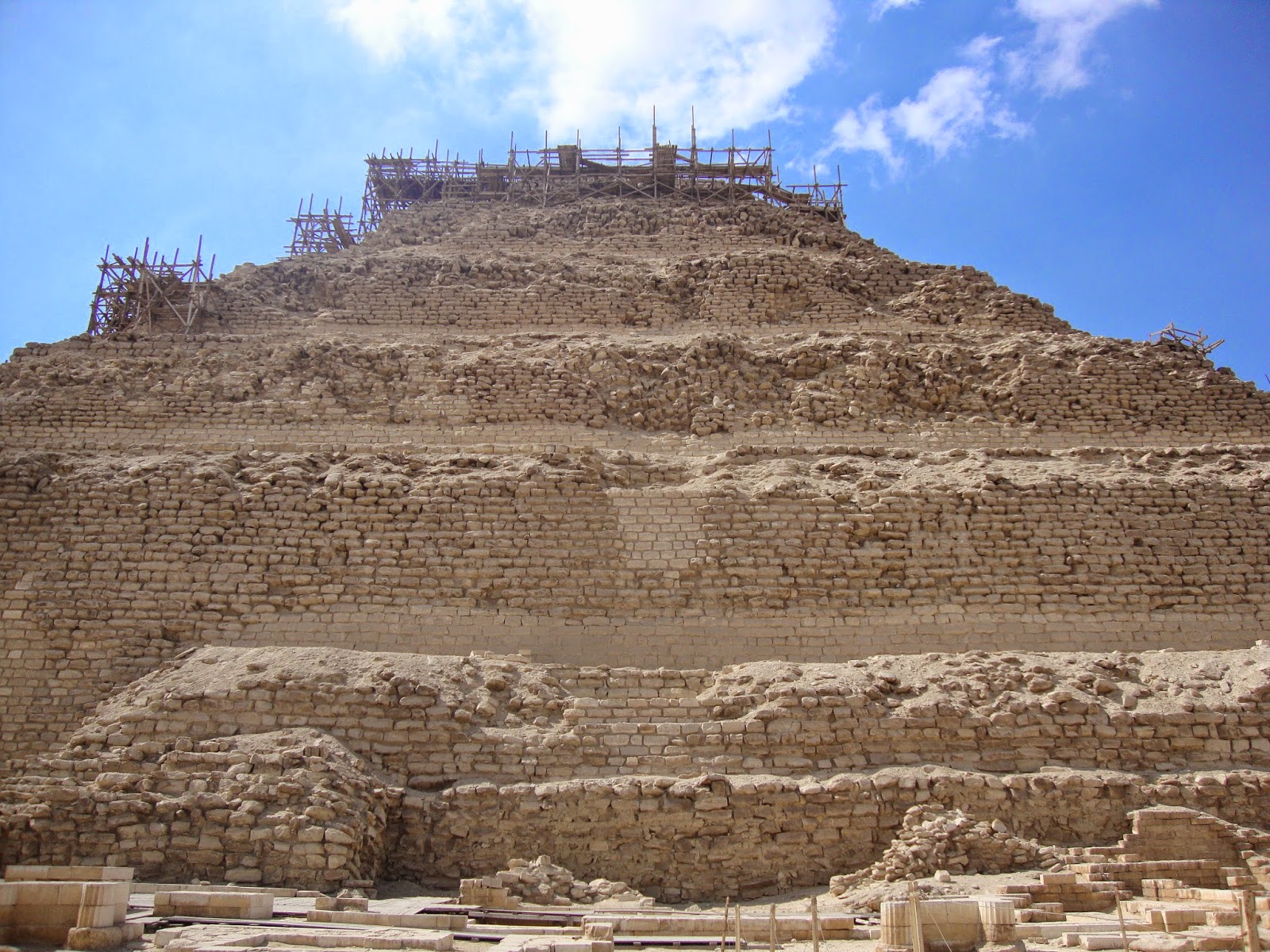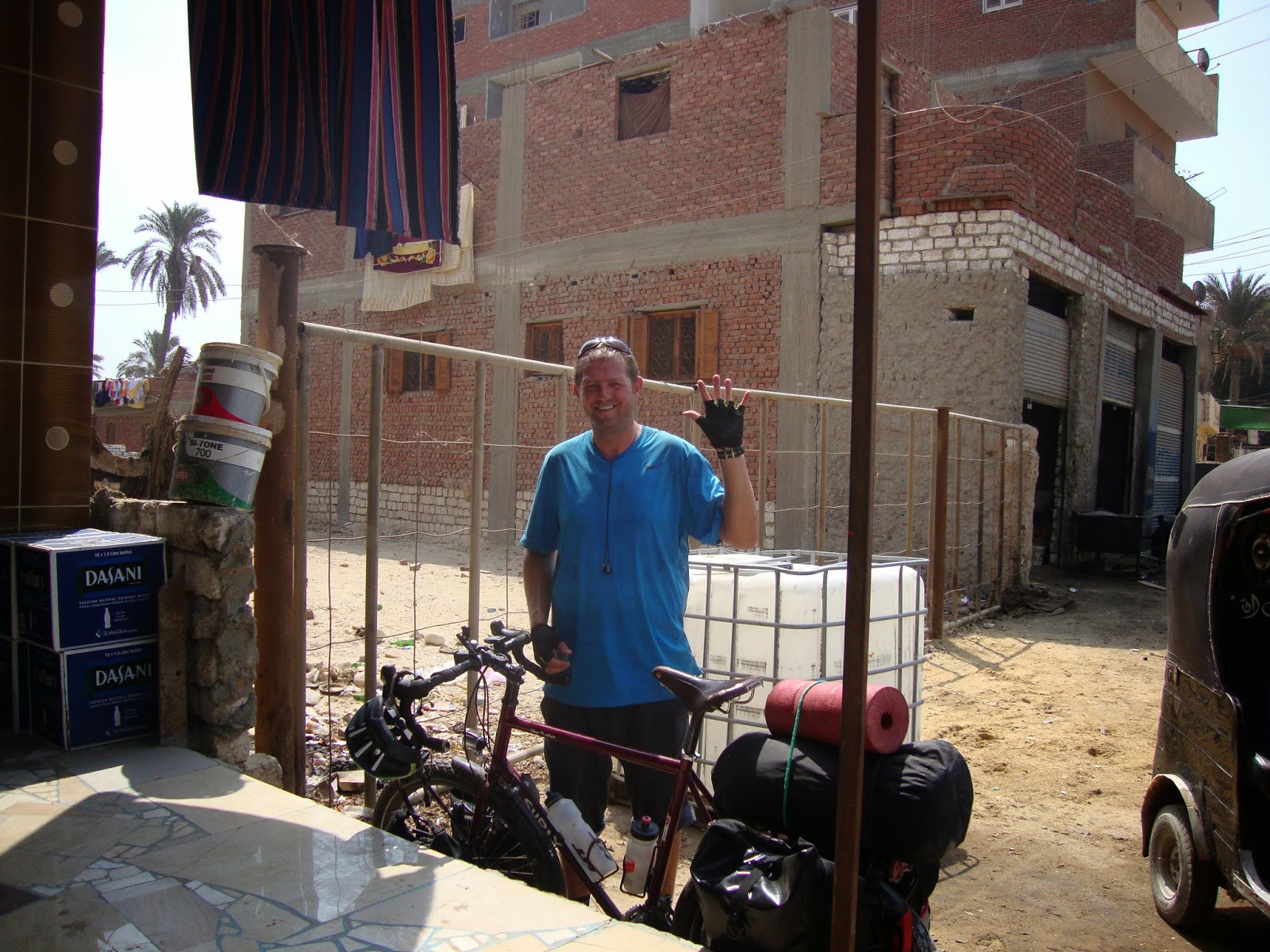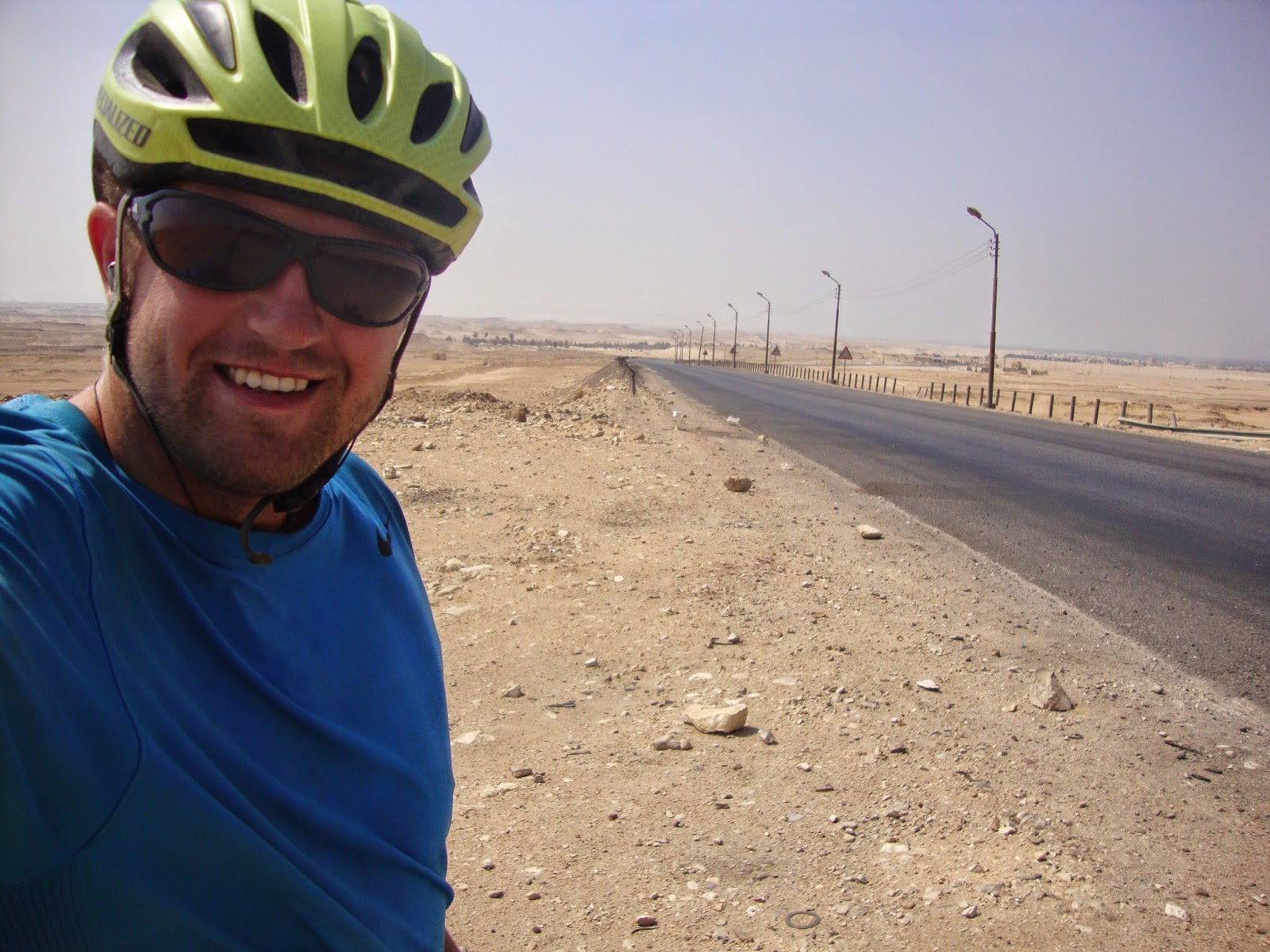After turning back in the desert the bus dropped me on the outskirts of Khartoum so it was 12k of night riding through the city to get to the hostel.
The plan was to get my Sudanese visa registered (supposed to be done 3 days after arriving into Sudan so I was a little late) and get my visa for Ethiopia.
I thought that this should take 3 days at the most but because it was the festival of Eid the Ethiopian embassy was closed and I would have to wait 6 days for it to open again.
So I had to have a week in Khartoum. All the tourist activities were closed because of Eid and most of the shops were also closed.
Downtown Khartoum. The drains don't work as they are full of rubbish so when it rains the water stays.
I meet up with Tim the Australian from Wadi Halfa for a BBQ near the Nile and spent some time with Nori a Libyan who was also staying at the hostel. He has travelled all over Africa and gave me some good ideas of where to go for the rest of the trip.
I went to the football (Sudan v Nigeria) that was a qualification game for the Africa cup of Nations. A 1-0 win to Sudan but it wasn't much of a game.
I got my Sudanese visa registered. It took 4 hours and 2 trips to the registration office at the Airport and $50US but it allowed me to leave Sudan.
Apart from that there was a lot of coffee drunk and I spent the hottest part of the day in the air conditioning at the mall just to get out of the heat.
The main problem I had was that I was running out of money. I had budgeted what I would need based on the costs in the Lonely Planet Africa book but I didn't know that the rate of inflation in Sudan is 40% so even though the book was only a year old all the prices were double. I also didn't plan on spending a week in Khartoum.
There are economic sanctions in place against Sudan (The president/dictator Omar al-Bashir has been charged with war crimes) and the Visa card doesn't work there so I had no way of getting any money.
The day after getting my Ethiopian visa I left Khartoum. I was happy to be leaving, there wasn't a lot to do in Khartoum and it was very hot.
I want to say it was good to get back on the bike again but it wasn't. I was low on money and probably wouldn't have enough to get to Ethiopia via bike, it was very hot, my MP3 player broke in the desert heat, it was 500k to the nearest beer and the events in getting to Khartoum were fresh in my mind.
The driving in Southern Sudan wasn't good. There was plenty of traffic and every 10 minutes I would be forced off the road by a car overtaking and ignoring that I was there. I would also be forced off the road when two buses or a bus and a truck converged. Sudan has 9370 deaths per 100000 cars, the second worst in the world, and I was beginning to see why.
The 6000k mark
As it turned out it was only 260km before I had to stop. I had become unwell after eating/drinking something bad and some simple calculations meant I had only just enough money to make it to Ethiopia via bus.
I was around 300km from the border and then a a further 180km from the nearest ATM at Gondar. So at Waid Mendai I had to take the bus. I had enough money for around 4 days biking and it was going to take me at least 8 days to get to Gondar.
The bus station at Wadi Mendai. From here it was to Gallabat.
This is my hotel for the evening in Gallabat. I rode 30km around Gallabat in the dark after arriving looking for the bus stop that would take me to the Ethiopian border. I couldn't find it so I found a cheap hotel using the GPS.
Its a what am I doing here/can I do this moment. Egypt had been a failure, Sudan a disaster and I was about to get up in the morning and get on another bus to take me to Ethiopia.
It was a horrible, empty felling to know Sudan had defeated me again for the third and final time and there was nothing I could do about it.
My time in Sudan was over and I was happy about that. The people of Sudan had mostly been incredibly friendly but the heat, the lack of tourist sites, the rubbish that was everywhere, the bad food, the driving and the poor economic situation mean that Sudan isn't a great place to visit. Would I go back? No, once is enough.
So it was onto Ethiopia via the bus and to the town of Gondar.
There was sensational Ethiopian coffee
Stunning scenery and lots of hills
Sheep roaming the streets
A nice castle
And beer!
Ethiopia was going to be a big challenge because of the hills and the altitude but I was really looking forward to it.






































































